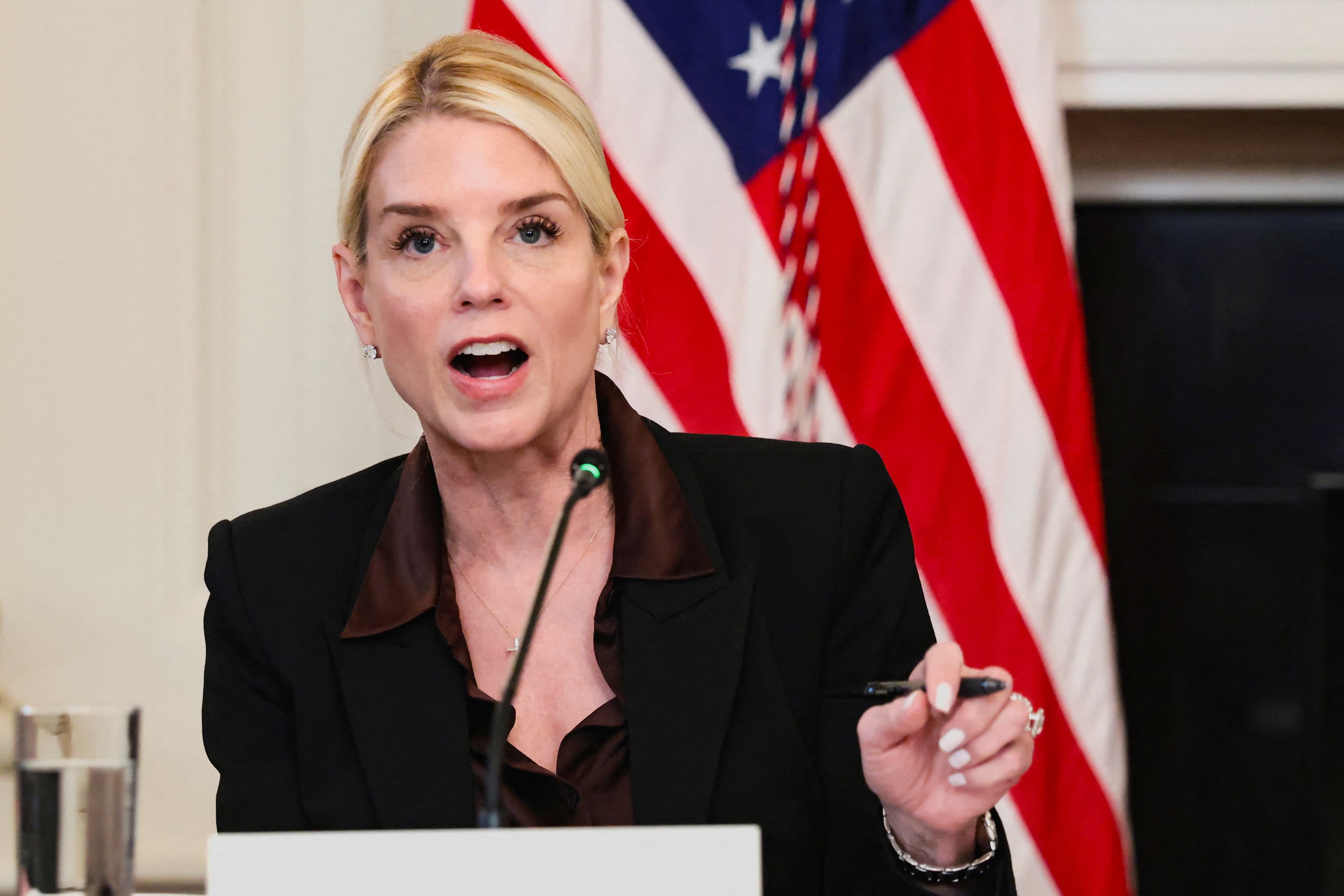Meta Takes Down Facebook Group Allegedly Targeting ICE Agents Following DOJ Intervention
Meta Takes Down Facebook Group Allegedly Targeting ICE Agents Following DOJ Intervention
By
Calder Monroe
Last updated:
October 15, 2025
First Published:
November 30, 2025

U.S. Attorney General Pam Bondi speaks during a roundtable on “Antifa,” an anti-fascist movement he designated a domestic “terrorist organization” via executive order on September 22, at the White House in Washington, D.C., Oct. 8, 2025. | Evelyn Hockstein | Reuters
Meta announced on Tuesday the removal of a Facebook group page allegedly used to “dox and target” U.S. Immigration and Customs Enforcement (ICE) agents in Chicago. The move comes after the Department of Justice (DOJ) contacted the company, urging action against platforms facilitating potential harm to federal law enforcement personnel.
Attorney General Pam Bondi highlighted the takedown in a post on X, emphasizing that the DOJ “will continue engaging tech companies to eliminate platforms where radicals can incite imminent violence against federal law enforcement.”
A Meta spokesperson confirmed the removal, citing violations of the company’s policies against coordinated harm and promoting crime. While the spokesperson did not provide specific numbers or details about the group, they stated: “This Group was removed for violating our policies against coordinated harm.”
Broader Tech Industry Crackdown
Meta’s action is part of a larger trend in the tech industry. In recent weeks, both Apple and Google have taken steps to remove apps that could be used to anonymously report ICE officers and other law enforcement.
Apple removed the ICEBlock app nearly two weeks ago after pressure from Bondi, who called the app “designed to put ICE agents at risk just for doing their jobs.” The company stated that the removal was based on law enforcement reports highlighting potential safety threats.
While Google did not host ICEBlock on its Play Store, the company said it had removed similar apps for violating its policies in October, even without direct DOJ contact. These actions indicate a growing collaboration between federal authorities and major tech firms to curb platforms that could facilitate threats or harassment against law enforcement personnel.
The Controversy Around ICEBlock
ICEBlock’s creator, Joshua Aaron, criticized both Apple and the White House for the removals. In an interview, he argued that the app was no different from navigation apps like Waze, which allow users to report police activity.
“This is about our fundamental constitutional rights being stripped away by this administration, and the powers that be who are capitulating to their requests,” Aaron told CNBC.
Despite these criticisms, federal authorities maintain that apps and online groups encouraging harassment or threats against ICE officers present real safety risks, especially amid heightened political tensions and protests targeting immigration enforcement.
Implications for Social Media Platforms
The Meta takedown underscores the growing responsibility tech companies face in monitoring and policing content that could lead to real-world harm. Industry analysts note that social media platforms are under increasing scrutiny to balance free speech with public safety, particularly when federal personnel or national security interests are involved.
As tech companies respond to regulatory pressure, the incident highlights a broader shift in digital governance, where platforms are expected to act quickly against coordinated threats, even at the cost of controversy and public debate.
Meta, Apple, and Google are likely to continue tightening controls on apps and groups that could endanger law enforcement, signaling a new era of heightened accountability and compliance in the tech sector.
Popular articles
Subscribe to unlock premium content
Gourmet Gold: Micro-Venture Funds and Europe’s Artisan Food Revolution

Artificial Elegance in Fashion

Ferrari’s Craft of Desire

Gourmet Gold: Micro-Venture Funds and Europe’s Artisan Food Revolution

Artificial Elegance in Fashion

Gourmet Gold: Micro-Venture Funds and Europe’s Artisan Food Revolution









